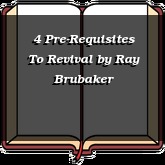"Come ye, and let us go up to the mountain of the Lord."
—Isaiah 2:3
It is exceedingly beneficial to our souls to mount above this present evil world to something nobler and better. The cares of this world and the deceitfulness of riches are apt to choke everything good within us, and we grow fretful, desponding, perhaps proud and carnal. It is well for us to cut down these thorns and briers, for heavenly seed sown among them is not likely to yield a harvest; and where shall we find a better sickle with which to cut them down than communion with God and the things of the kingdom? In the valleys of Switzerland many of the inhabitants are deformed, and all wear a sickly appearance, for the atmosphere is charged with miasma, and is close and stagnant; but up yonder, on the mountain, you find a hardy race, who breathe the clear fresh air as it blows from the virgin snows of the Alpine summits. It would be well if the dwellers in the valley could frequently leave their abodes among the marshes and the fever mists, and inhale the bracing element upon the hills. It is to such an exploit of climbing that I invite you this evening. May the Spirit of God assist us to leave the mists of fear and the fevers of anxiety, and all the ills which gather in this valley of earth, and to ascend the mountains of anticipated joy and blessedness. May God the Holy Spirit cut the cords that keep us here below, and assist us to mount! We sit too often like chained eagles fastened to the rock, only that, unlike the eagle, we begin to love our chain, and would, perhaps, if it came really to the test, be loath to have it snapped. May God now grant us grace, if we cannot escape from the chain as to our flesh, yet to do so as to our spirits; and leaving the body, like a servant, at the foot of the hill, may our soul, like Abraham, attain the top of the mountain, there to indulge in communion with the Most High.
Ⓒ 1996-2021 Heartlight, Inc. This material may not be reproduced in part or whole for commercial use without written consent. Written by Charles H. Spurgeon.

Continue reading...
—Isaiah 2:3
Evening Thought
It is exceedingly beneficial to our souls to mount above this present evil world to something nobler and better. The cares of this world and the deceitfulness of riches are apt to choke everything good within us, and we grow fretful, desponding, perhaps proud and carnal. It is well for us to cut down these thorns and briers, for heavenly seed sown among them is not likely to yield a harvest; and where shall we find a better sickle with which to cut them down than communion with God and the things of the kingdom? In the valleys of Switzerland many of the inhabitants are deformed, and all wear a sickly appearance, for the atmosphere is charged with miasma, and is close and stagnant; but up yonder, on the mountain, you find a hardy race, who breathe the clear fresh air as it blows from the virgin snows of the Alpine summits. It would be well if the dwellers in the valley could frequently leave their abodes among the marshes and the fever mists, and inhale the bracing element upon the hills. It is to such an exploit of climbing that I invite you this evening. May the Spirit of God assist us to leave the mists of fear and the fevers of anxiety, and all the ills which gather in this valley of earth, and to ascend the mountains of anticipated joy and blessedness. May God the Holy Spirit cut the cords that keep us here below, and assist us to mount! We sit too often like chained eagles fastened to the rock, only that, unlike the eagle, we begin to love our chain, and would, perhaps, if it came really to the test, be loath to have it snapped. May God now grant us grace, if we cannot escape from the chain as to our flesh, yet to do so as to our spirits; and leaving the body, like a servant, at the foot of the hill, may our soul, like Abraham, attain the top of the mountain, there to indulge in communion with the Most High.
Ⓒ 1996-2021 Heartlight, Inc. This material may not be reproduced in part or whole for commercial use without written consent. Written by Charles H. Spurgeon.
Continue reading...


 Hello everyone! Let's lift up
Hello everyone! Let's lift up  ️
️ Let's lift up **
Let's lift up ** **
** **
** **@usha_rani** & **
**@usha_rani** & ** Let's lift up
Let's lift up 
 **Healing**:
**Healing**:  **Safe Delivery**:
**Safe Delivery**:  **Spiritual Strength**:
**Spiritual Strength**:  Hello everyone! Let's lift up these needs in prayer:
Hello everyone! Let's lift up these needs in prayer:


